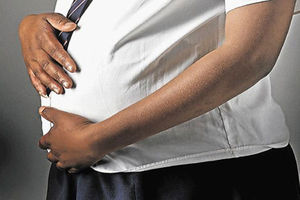
Dominic Maina Nyambura, who was jailed for 15 years in January 2020, walked free on appeal.
A man who was convicted and jailed for 15 years for allegedly defiling a minor has walked free because of mistakes made by the investigating officer and the prosecution in the case.
Dominic Maina Nyambura, who was jailed for 15 years in January 2020, walked free on appeal after the High Court faulted the investigating officer - Isaiah Jillo - for failing to produce key documents such as the P3 form and baptism card to prove the offence and the age of the victim.
Judge Nixon Sifuna discharged Maina, saying that although the P3 form confirmed that the offence had been committed, the investigating officer did not have the knowledge or qualification to comment on the contents of medical findings such as the clinical notes. A fatal omission, he said.
On the age of the victim, the judge said that a baptismal certificate showing the age of the girl was merely evidence that one had been baptised and did not prove the date of birth or age of the person concerned.
"I am of the view that a baptism card or baptism certificate, as the case may be, is not equivalent, synonymous, approximate or a substitute for a birth certificate, a birth registration certificate or even an age assessment report," the judge said.
Maina was convicted and sent to prison on January 28, 2020 by Kangema Senior Principal Magistrate P.M. Kiama.
The charge against him was that he committed the offence on October 30, 2019 at Gakira sub-location in Murang'a County. The court was informed that the victim was 15 years old.
He appeared in person and called three people in his defence. Mr Maina was dissatisfied with both the conviction and sentence and appealed.
The witnesses included the girl, her mother, the investigating officer, Mr Jillo, and an official from Murang'a Level 5 Hospital.
The girl said Maina was her sister's lover. She said he lured her to his house on her way to a supermarket and, after threatening her, defiled her.
After the ordeal, she went to the supermarket and later reported the incident to her mother. The case was reported to Kangema Police Station before she was taken to hospital for treatment.
During the hearing, the prosecution produced a copy of the baptismal certificate dated 1 November 2019, as well as the treatment notes from the hospital and the P3 form.
The judge noted that in cases of sexual offences, the burden of proof is on the prosecution and the standard of proof is beyond reasonable doubt.
According to Prof Sifuna, where there is reasonable doubt, the advantage goes to the accused.
The judge said the prosecution has to prove three things including the age of the victim, that there was penetration and the identity of the perpetrator.
"If the prosecution fails even on the limb of age alone, the whole case collapses and there is no need for the court to proceed to the other two elements," the judge said.
The judge noted that once the complainant has stated that she is 15 years old, her age must be supported by medical evidence or other appropriate documentary evidence such as a birth certificate.
Judge Sifuna added that the medical evidence should be in the form of an age assessment report or a birth certificate or other official document stating the date of birth.
A baptismal certificate, the judge said, is only evidence that one has been baptised and not the date of birth or age of the person.
The judge said another issue is whether the investigating officer is the proper witness to produce such documents.
Justice Sifuna said there are exhibits and documents that the investigating officer may not be competent to produce because of lack of capacity or by operation of law (in the context of the law of evidence).
"I am of the view that there is no power to produce disputed documents or documents which are ordinarily expected to be in the custody of the appellant or the appellant's witness or in the custody of a government agency," the judge said.
He said in the case of such documents, it is the complainant or the designated government official who should produce them.
He said if the investigating officer produces the documents, the documents will be mere hearsay and will have no evidential value.
The court noted that it was not clear whether the girl was 14 or 15 years old because of contradictions in the documents.
"With all these contradictions and inconsistencies in the complainant's supporting documents on the element of age, which is a key element of the offence of defilement, it would have been prudent for the investigating officer to accompany or refer the complainant to a medical expert for age assessment and obtain an age assessment report which the expert would then have to submit," the judge said.
The court said the prosecution had failed to prove the offence of defilement, leaving the court's conviction of the accused hanging in the air or standing on quick sand without any evidential anchor.
"The conviction was improper and is hereby quashed," the judge said.











